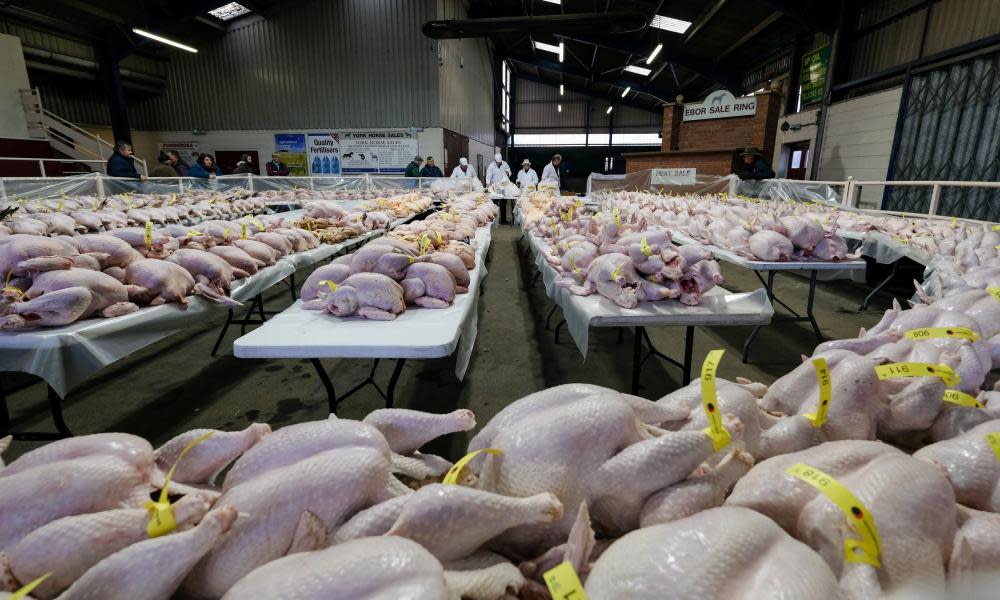Why I’m looking forward to my first vegan Christmas

This Christmas is the first time I won’t be eating turkey. I’ve become a vegetarian. Actually, at home I’m a vegan. And very occasionally, when travelling, I’ll eat chicken, when it’s that or go hungry. I wonder what you think about that. That I’m a patronising hypocrite? That I’m deeply confused? Maybe you couldn’t care less. Few things are more personal than what you choose to eat, but few choices have more impact on the health of our bodies and our planet. That’s a recipe for a very challenging debate, so let’s tuck in.
I have changed what I eat because of the now overwhelming evidence of global environmental damage caused by meat and dairy production. It produces more climate-warming emissions than all cars, trains, ships and planes combined. If the world’s diet doesn’t change, we simply can’t beat climate change.
The ongoing annihilation of wildlife – an incipient mass extinction – is also driven by the destruction of wild places for farmland, much of which is used for raising and feeding cattle. These thirsty beasts and the crops they are fed require huge amounts of precious water. Their slurry creates vast dead zones in rivers and oceans and the fumes stoke air pollution. The overuse of antibiotics to fatten animals up is driving the rise of superbugs. All these impacts fulfilled my appetite for change – it is the single biggest and fastest way to cut my impact on the Earth. Choosing to have fewer children has a big effect, but only over decades. But there is more. In rich nations, people eat far more meat than is healthy. If Britons actually followed their government’s official advice on a healthy diet, they would eat 89% less beef, 63% less lamb, but 86% more beans and 54% more fruit and vegetables. Doing so would prevent huge numbers of early deaths from heart disease, stroke, diabetes and cancer and healthier diets do not cost shoppers any more. It might well be cheaper. But one diet does not fit all: in poor parts of the world more meat and dairy might be valuably nutritious. When considering your food choices, there’s a third issue on the menu, that of animal welfare. Many cattle, pigs and chickens are raised in appallingly cruel conditions, which most of us are happy never to see or even contemplate. Animals can be raised more kindly, but they still make much less efficient use of land than growing crops for people to eat – cutting out the middle-cow, if you like.
With such a potent pot of issues, it is no wonder the debate can quickly become toxic. A calculation by Oxford University researchers of how high a meat tax would need to be to mostly cover the health costs incurred by eating it found that the price of bacon and sausages would double. “What claptrap. Bacon is an important contributor to my wellbeing,” shot back former UK environment secretary Liz Truss. She was backed up by the current environment minister Thérèse Coffey, who asked: “What next … No spag bol?” Even climate change minister Claire Perry joined in the furore. Encouraging people to eat less meat would be the “the worst sort of Nanny State ever” she stated. The political short-termism was not confined to the Tories: Tom Watson, deputy leader of the Labour party, also came out against it. The rightwing thinktank the Institute of Economic Affairs described such a meat tax as a “sin tax” and dismissed the study as “the same combination of junk science and dodgy economics that led to the sugar tax”, while the Taxpayers Alliance railed against “tiresome puritans”. The IEA and the Taxpayers Alliance refuse to reveal who funds them. So we will never know if, or how much, the meat industry is influencing their pronouncements.
It’s clear that, despite the weight of academic evidence, people have a strong gut reaction when told eating less meat would be a good thing. The stereotype of vegans – fanatics wanting to rip the burger from your jaws – does not help, as plenty of them acknowledge. The lack of a better word for those who choose to eat less meat does not help either: flexitarian, reducetarian and climatarian don’t really trip off the tongue. I prefer “plant-based”, with its helpful ambiguity about whether that means 100% plant-based or not. But for all the noisy backlash, people are voting with their knives and forks, especially the young. A third of Britons are now avoiding or reducing meat, and supermarkets are whipping up plant-based food ranges. You might worry that soya milk and tofu also drive deforestation. Don’t – South American soya is fed to cattle, with just 1% used as products for humans. Unsustainable palm oil is however more concerning and best avoided. All choices can be catered for. If you feel passionately about animal rights, you can eat a strict vegan diet. If health is your motivator, choose wholefood, plant-based meals. If environmental protection is your carrot, new companies are rapidly developing tasty beef-free burgers.
If it’s all of these reasons to some degree, mix and match. And it it’s none and you want to continue eating as much meat as you like don’t complain if at some point in the future a meat tax is levied to cover the damage caused. Eating meat is, and should remain, a personal choice. But those wanting to eat less, or none, should be encouraged not castigated, especially by our political leaders. Is that really so hard to swallow?
• Damian Carrington is the Guardian’s environment editor

 Yahoo News
Yahoo News 
